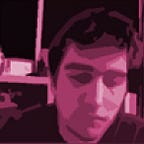Why I Still Write
It was a frigid fall morning in Upstate New York. The seven of us unloaded ourselves from the van our teacher had rented and we spilled out into a parking lot outside of one of the libraries at Syracuse University. I remember looking up at the brick building in awe, marveling at the ivy lacing different parts of the exterior. What were people like who passed through here? What would they become?
We were enrolled in an experimental research course at our high school entirely concocted by our teacher, and this trip was part of the curriculum she assembled for us to engage in empirical research on a topic of our choice. The principal of our high school didn’t like this class. We were already nationally ranked in Science Olympiad — a golden jewel for many parents who saw such competitions as a ticket to Ivy League admissions — and a small enrollment course for empirical research was of dubious value to the principal.
But this class changed my life. I will forever remember being let loose in the university library with the only objective being to find journal articles or books related to a topic I wanted to study. I stood before floors and floors of shelves with topics unknown, and I somehow had to figure out what mattered to me. Looking back, it felt something like an Escape the Room challenge. Us students fanned out across the library, beginning our efforts to map the space and locate what we needed.
For some reason, my topic of choice was ornithology. I honestly can’t tell you why I was so into this. But my family still jokes about the time my sister asked me to use my research knowledge to identify the bird that pooped on our parents’ car.
Anyways, birds. I had somehow figured out how to use the computers on the main level of the library to locate which floor books related to that topic were on, and found what seemed like a few interesting articles published about birds’ songs. I used a dinky pencil and recycled piece of paper adjacent to the computer to write the code to locate the articles, and set about finding it. I climbed four flights of stairs and found myself alone in the book stacks, and managed to locate the first article. Confused, I eventually realized that the article was bound in a hardcover “book” that was actually a volume of the journal that included many other articles, too. I opened the table of contents, located the piece, and flipped to the page to discover what I was looking for.
Initially, I was disappointed with what I had found. The article was seemingly illegible to me. The authors dropped Latin names for different species of birds that I didn’t recognize, and the discussions they shared referenced theories and formulae I knew nothing about. But the figures were beautiful — illustrations of what seemed to be representations of bird songs and repertoires that could be compared between species. How did they develop those? What did it show them?
But it wasn’t until I reached the end of the article that I found something that changed me forever, and to this day inspires me to conduct research and write. It was the bibliography. In the pages that followed, I saw countless articles that were related to song repertoires. Some of them were dated into the early 1900s. I noticed not just studies about birds but human infants, too, and something called “object permanence.” How could research about birds be related to human infants? What was object permanence, and who was this Jean Piaget character referenced over and over by all these different authors?
I used my dinky pencil and recycled paper to note articles with interesting titles, walked back down to the computer by the main floor, and refocused my hunt. Certainly this still felt like a puzzle I was trying to solve, but it seemed much greater. I had stumbled upon a hidden world of people and their knowledge, and these bibliographies were maps that showed connections between them. I wanted to see the webs more clearly.
This is why I write. Even as someone working outside of the academy with no formal pressure to publish, I find writing to be an exhilarating exercise in understanding those webs of meaning and contributing to it in my own way. And who knows — there’s a chance that one of my citations might illuminate for someone where else to go next on their journey in the way it did for me.
